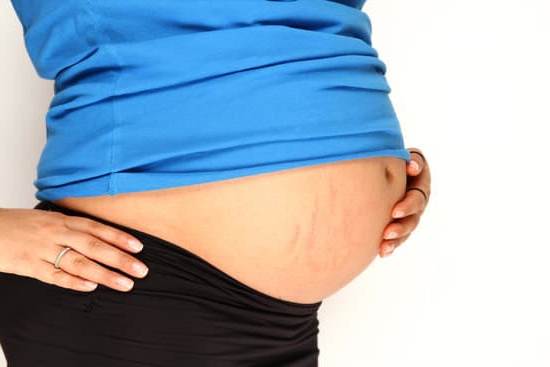Early pregnancy can be an exciting and overwhelming time for many individuals. However, experiencing bleeding during this period can be concerning and may raise questions about the health of the pregnancy.
In this article, we will explore the signs, symptoms, causes, risk factors, and treatment options for bleeding in early pregnancy. It is important for individuals to have a clear understanding of what to expect during early pregnancy and when to seek medical help if they experience any abnormal symptoms, including bleeding.
Experiencing bleeding in early pregnancy can be a distressing experience for many individuals. Understanding the signs and symptoms of early pregnancy is crucial in order to differentiate between normal processes and potential complications. By delving into the causes of bleeding in early pregnancy, individuals can gain a better understanding of what may be triggering this symptom and when it is necessary to seek medical assistance.
Moreover, this article will also discuss various types of bleeding that may occur during early pregnancy, as well as the risk factors associated with experiencing bleeding. Additionally, helpful tips for coping with bleeding in early pregnancy and preventive measures will also be discussed to provide readers with comprehensive information on managing this situation.
Signs and Symptoms of Early Pregnancy
Missed Period
One of the most common signs of early pregnancy is a missed period. If a woman has a regular menstrual cycle and suddenly misses her period, it could be a sign that she is pregnant. However, it’s important to note that other factors, such as stress or hormonal imbalances, can also cause a missed period.
Breast Changes
During early pregnancy, many women experience changes in their breasts. These changes may include tenderness, swelling, or tingling sensations. The breasts may also feel heavier and the areolas may darken.
Nausea and Fatigue
Nausea and fatigue are also common symptoms of early pregnancy. Many women experience morning sickness, which can actually occur at any time of day. Fatigue is also very common in early pregnancy due to the hormonal changes happening in the body.
It’s important to remember that not all women will experience all these symptoms during early pregnancy. Some women may have no symptoms at all, while others may have several. It’s always best to take a home pregnancy test or see a healthcare provider for confirmation if there is any suspicion of bleeding early pregnancy.
Causes of Bleeding in Early Pregnancy
Bleeding in early pregnancy can be a cause of concern for many women. It is crucial to understand the different factors that may contribute to bleeding during this stage, as it can range from normal to potentially serious issues.
One common cause of bleeding in early pregnancy is implantation bleeding. This occurs when the fertilized egg attaches itself to the uterus lining, usually around 6-12 days after conception. Implantation bleeding is usually lighter and shorter than a typical period and may be accompanied by mild cramping.
Another possible cause of bleeding in early pregnancy is miscarriage. Miscarriage, or the loss of a pregnancy before 20 weeks, can result in vaginal bleeding, along with abdominal pain and cramping. It’s important for women experiencing these symptoms to seek medical attention immediately.
Additionally, ectopic pregnancy, which happens when the fertilized egg implants outside the uterus – usually in one of the fallopian tubes – can lead to abnormal bleeding. This type of pregnancy is not viable and requires prompt medical treatment to prevent complications such as internal bleeding or rupture.
| Cause | Description |
|---|---|
| Implantation bleeding | Lighter and shorter than a typical period, may be accompanied by mild cramping |
| Miscarriage | Results in vaginal bleeding along with abdominal pain and cramping |
| Ectopic pregnancy | Fertilized egg implants outside the uterus leading to abnormal bleeding; requires urgent medical attention |
When to Seek Medical Help
Signs to Seek Medical Help
If you experience any bleeding early in your pregnancy, it is crucial to seek medical help immediately. While some light spotting can be normal, more significant bleeding accompanied by severe cramping or pelvic pain could indicate a more serious issue. Additionally, if you notice any tissue passing from your vagina or if the bleeding is heavy and persistent, it is essential to contact your healthcare provider right away.
Importance of Prompt Attention
Seeking medical help promptly when experiencing bleeding early in pregnancy is vital for ensuring both the health of the mother and the baby. Early intervention can help diagnose any potential complications and provide appropriate treatment. Neglecting to seek medical assistance could result in worsening of any underlying issues and pose a risk to the pregnancy.
What to Expect at the Doctor’s Office
When you consult with a healthcare professional regarding bleeding in early pregnancy, they will likely conduct a thorough physical exam and may also recommend ultrasound imaging. This will help determine the source and potential cause of the bleeding. Based on their assessment, they will provide guidance on next steps and any necessary interventions. It is essential to be open and honest with your healthcare provider about your symptoms and concerns for proper evaluation and treatment.
Types of Bleeding in Early Pregnancy
Bleeding in early pregnancy can be a cause for concern for many expectant mothers. Understanding the different types of bleeding that can occur during this time can help women feel more informed and empowered to make decisions about their health and the health of their baby.
- Implantation bleeding: This occurs when the fertilized egg implants itself into the lining of the uterus, typically around 6-12 days after conception. It is usually light and may be mistaken for a light period.
- Threatened miscarriage: This type of bleeding is often accompanied by cramping, and it can indicate that a miscarriage may be imminent. However, not all women who experience threatened miscarriage will actually miscarry.
- Miscarriage: Miscarriage is the loss of a pregnancy before 20 weeks gestation. Bleeding associated with miscarriage can vary widely, from light spotting to heavy bleeding with clots.
It’s important for women experiencing any type of bleeding in early pregnancy to seek medical attention immediately. While not all instances of bleeding are cause for alarm, it’s always best to err on the side of caution when it comes to the health and well-being of both mother and baby. If you are experiencing bleeding early pregnancy, reach out to your healthcare provider as soon as possible for guidance and support.
Risk Factors for Bleeding in Early Pregnancy
When it comes to early pregnancy, there are certain risk factors that can increase the chances of experiencing bleeding. It’s important for expectant mothers to be aware of these factors in order to better understand their own pregnancy and take necessary precautions. Below are some common risk factors for bleeding in early pregnancy:
- Previous miscarriage or ectopic pregnancy: Women who have experienced a previous miscarriage or ectopic pregnancy may be at a higher risk for bleeding in early pregnancy.
- Advanced maternal age: Women over the age of 35 are more likely to experience complications during pregnancy, including bleeding.
- Medical conditions: Certain medical conditions, such as diabetes or high blood pressure, can increase the risk of bleeding in early pregnancy.
- Smoking and substance abuse: Women who smoke or use illicit drugs are at a higher risk for experiencing complications during pregnancy, including bleeding.
It’s important to note that having one or more of these risk factors does not necessarily mean that a woman will experience bleeding in early pregnancy. However, being aware of these risk factors can help expectant mothers make informed decisions and seek timely medical assistance if necessary.
If you are experiencing any signs of bleeding early pregnancy and have one or more of these risk factors, it’s crucial to consult with a healthcare professional as soon as possible. They can provide personalized guidance and support based on your specific circumstances.
Remember that every pregnancy is different, and it’s essential to prioritize your health and well-being during this critical time. Taking proactive steps to manage any potential risks can help ensure a healthier outcome for both mother and baby.
Treatment Options for Bleeding in Early Pregnancy
When experiencing bleeding early in pregnancy, it is important to seek medical attention immediately. The healthcare provider will conduct a thorough assessment to determine the cause of the bleeding and recommend appropriate treatment options. In cases of threatened miscarriage or ectopic pregnancy, medical intervention may be necessary to prevent further complications.
One common treatment option for bleeding in early pregnancy is progesterone supplementation. This hormone plays a crucial role in maintaining the uterine lining and supporting the pregnancy. Progesterone supplements can help stabilize the uterine environment and reduce the risk of miscarriage in some cases of unexplained bleeding.
In cases where there is an infection or underlying medical condition contributing to the bleeding, antibiotics or other medications may be prescribed to address the issue. It is important to follow the healthcare provider’s recommendations closely and attend all follow-up appointments to monitor progress and ensure the effectiveness of the treatment.
It’s also essential to prioritize rest and avoid any activities that may exacerbate the bleeding. In some cases, pelvic rest may be recommended, which includes abstaining from sexual intercourse and refraining from strenuous physical activities. Additionally, staying well-hydrated and maintaining a healthy diet can help support overall well-being during this challenging time.
| Treatment Options | Description |
|---|---|
| Progesterone Supplementation | Hormonal support to stabilize the uterine environment |
| Medication | Prescription of antibiotics or other medications as needed |
| Rest and Self-care | Prioritizing rest, avoiding strenuous activities, and maintaining hydration and nutrition |
Tips for Coping With Bleeding in Early Pregnancy
Dealing with bleeding in early pregnancy can be a scary and stressful experience for any expectant mother. It is important to remember that not all cases of bleeding in early pregnancy result in miscarriage, and there are ways to cope with the emotional and physical challenges that come with this symptom.
One tip for coping with bleeding in early pregnancy is to seek support from your partner, family, or friends. Having a strong support system can help alleviate some of the anxiety and fear that may arise from experiencing this symptom. Talking about your feelings and concerns with loved ones can provide comfort and reassurance during a difficult time.
Another helpful tip is to practice self-care. This includes getting plenty of rest, staying hydrated, and engaging in activities that help reduce stress. It is also important to follow any recommendations or restrictions given by your healthcare provider, such as avoiding strenuous exercise or sexual activity until the cause of the bleeding has been determined.
Additionally, finding healthy ways to manage stress can be beneficial when coping with bleeding in early pregnancy. Consider practicing relaxation techniques such as deep breathing exercises, meditation, or yoga. Engaging in activities that bring you joy and relaxation can also help take your mind off worries related to the bleeding.
By implementing these coping strategies, individuals experiencing bleeding in early pregnancy can navigate this challenging time with greater ease and peace of mind while ensuring they receive any necessary medical attention.
Preventing Bleeding in Early Pregnancy
In conclusion, bleeding in early pregnancy can be a cause for concern and anxiety for many expectant mothers. Understanding the signs and symptoms of early pregnancy, as well as the causes of bleeding in early pregnancy, can help individuals know when to seek medical help.
It is important to remember that while bleeding in early pregnancy can be scary, it does not always mean there is a serious problem. However, it is always best to err on the side of caution and seek medical evaluation if you experience any abnormal bleeding.
When it comes to preventing bleeding in early pregnancy, there are some steps that expectant mothers can take to reduce their risk. Making sure to attend prenatal care appointments regularly and following your healthcare provider’s recommendations for a healthy lifestyle can help minimize the chances of experiencing complications such as bleeding during early pregnancy.
Additionally, it is crucial for individuals who experience bleeding in early pregnancy to remember to take care of themselves both physically and emotionally. Seeking support from healthcare providers, loved ones, or support groups can help manage anxiety and stress during this time. Overall, while bleeding in early pregnancy can be alarming, taking proactive steps and seeking appropriate medical care can help ensure the best possible outcome for both mother and baby.
Frequently Asked Questions
When Should I Be Worried About Bleeding in Early Pregnancy?
Bleeding in early pregnancy can be a cause for concern, especially if it is accompanied by severe cramping or passing of large blood clots. It could indicate a miscarriage or ectopic pregnancy, so it’s important to seek medical attention if you experience this.
Is Bleeding at 5 Weeks Pregnant Normal?
While some light bleeding at 5 weeks pregnant can be normal and is often due to implantation, any heavy bleeding or bleeding accompanied by severe pain should be evaluated by a healthcare professional. It’s always best to err on the side of caution and get checked out.
Is Bleeding Like a Period in Early Pregnancy?
Bleeding like a period in early pregnancy can be worrisome, as it may signal a miscarriage or other complications. However, some women experience light bleeding that resembles a period and go on to have healthy pregnancies. It’s important to consult with your doctor to determine the cause of the bleeding and ensure the safety of the pregnancy.

Welcome to my fertility blog. This is a space where I will be sharing my experiences as I navigate through the world of fertility treatments, as well as provide information and resources about fertility and pregnancy.





